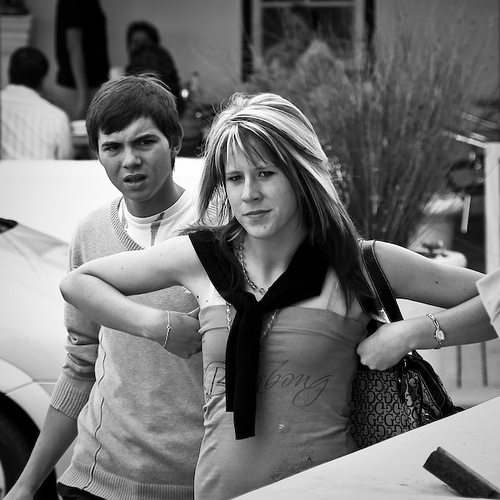
Appel à contributions
Dress(ing) in Public : Dress, Ideology and the Female Body
Avant le 7 septembre - New York
CFP Association of American Geographers 2012
New York, February 24th – 28th 2012
Session organisers : Hilal Ozcetin (Simon Fraser University, CA), Hulya Arik (York University, CA)Discussant : Dr. Banu Gokariksel (University of North Carolina, USA)
In the last two decades, feminist geography analyzed the body, and delineated the ideological/discursive premises of space as a social construct (Grosz 1994, Duncan 1996, Nast and Pile 1998, Longhurst 1995, 2008, McDowell 1995, Bell and Valentine 1995). Studies of the female body with reference to public space and dress codes have shown how socio-political discourses shape the female body in and across certain spaces (Secor 2002, 2004, Gokariksel 2009, Çınar 2008, Nagar 1997, Bell 1991, Valentine 1993, Peake and Trotz 1999, Pratt 1998, McKittrick 2006). However, while these studies provide an analysis of the way in which the body and space is talked about and acted on, there is still need for a focused examination of dress as it is lived, experienced and embodied by women. This session aims to explore dressed bodies and embodiment through an analysis of the discourses on dress that shape and regulate women’s bodies. How do we conceptualize dressed bodies in relation to religious, ethnic and national identities ? Can we bring together seemingly different contexts, meanings, and styles of dress such as the “slut walks”, Muslim women’s hijab or fashion ? We welcome papers with empirical and theoretical focus on construction of the female body and norms of dress in public space from a wide geographical spectrum. Our goal is to open up an alternative space for a discussion that would explore dress as an embodied practice in relation to space. We want to understand how discursive practices of dress act upon the female body and produce control mechanisms over women’s bodies as well as how women make sense of their bodily experiences.
Possible topics and questions:How do women negotiate the meanings of dress within specific temporal and spatial relations ?How does socio-historical context shape the dress practices ?How does dress form one of the dimensions of national identity construction ?How do militarist discourses and militarization produce the female body ?How do the developments in textile and fashion change the relation between the body and the dress ?How does the change in the socio-economic situations create new forms of dresses for different bodies ?How do women employ particular strategies of dress in public spaces ?How queer identities are performed in relation to clothing ?How are identities performed in relation to gender and dress ?How does dress play a role in constructing and identifying gender ?How can dress be used to contest or legitimate the power of the state and the meaning of citizenship ?How does religion regulate bodies through dress/dress codes and how member of religious communities negotiate stipulations ?
Abstracts of 250 words (maximum) should be submitted to Hulya Arik (hulya@yorku.ca) and Hilal Ozcetin (hoa1@sfu.ca) by September 7th 2011.
Fichiers de syndication :
Statistiques :
Le site contient 4383 articles
